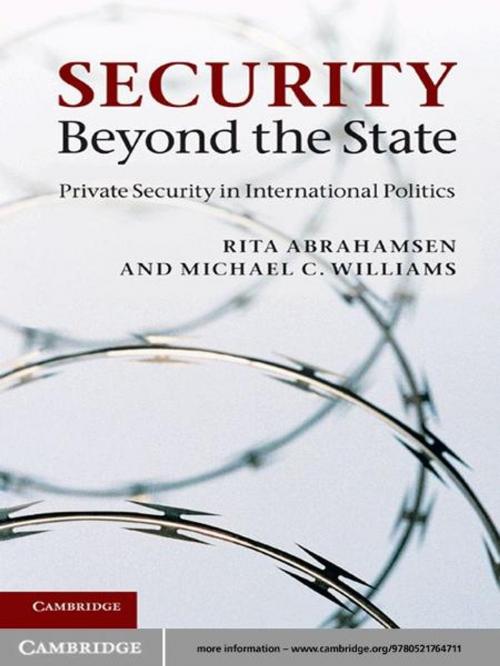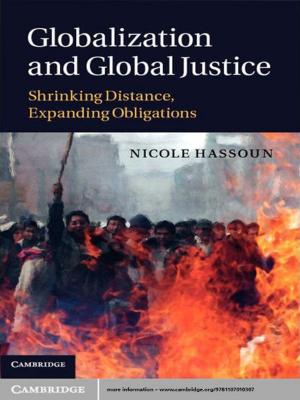Security Beyond the State
Private Security in International Politics
Nonfiction, Social & Cultural Studies, Political Science, International, International Relations, Social Science| Author: | Rita Abrahamsen, Michael C. Williams | ISBN: | 9780511993664 |
| Publisher: | Cambridge University Press | Publication: | November 18, 2010 |
| Imprint: | Cambridge University Press | Language: | English |
| Author: | Rita Abrahamsen, Michael C. Williams |
| ISBN: | 9780511993664 |
| Publisher: | Cambridge University Press |
| Publication: | November 18, 2010 |
| Imprint: | Cambridge University Press |
| Language: | English |
Across the globe, from mega-cities to isolated resource enclaves, the provision and governance of security takes place within assemblages that are de-territorialized in terms of actors, technologies, norms and discourses. They are embedded in a complex transnational architecture, defying conventional distinctions between public and private, global and local. Drawing on theories of globalization and late modernity, along with insights from criminology, political science and sociology, Security Beyond the State maps the emergence of the global private security sector and develops a novel analytical framework for understanding these global security assemblages. Through in-depth examinations of four African countries – Kenya, Nigeria, Sierra Leone and South Africa – it demonstrates how global security assemblages affect the distribution of social power, the dynamics of state stability, and the operations of the international political economy, with significant implications for who gets secured and how in a global era.
Across the globe, from mega-cities to isolated resource enclaves, the provision and governance of security takes place within assemblages that are de-territorialized in terms of actors, technologies, norms and discourses. They are embedded in a complex transnational architecture, defying conventional distinctions between public and private, global and local. Drawing on theories of globalization and late modernity, along with insights from criminology, political science and sociology, Security Beyond the State maps the emergence of the global private security sector and develops a novel analytical framework for understanding these global security assemblages. Through in-depth examinations of four African countries – Kenya, Nigeria, Sierra Leone and South Africa – it demonstrates how global security assemblages affect the distribution of social power, the dynamics of state stability, and the operations of the international political economy, with significant implications for who gets secured and how in a global era.















